Delete Yourself: The Metaphysics of the Dark Enlightenment
How the oligarchy’s God projector makes the individual unnecessary
Silicon Valley oligarch Peter Thiel just completed a four-part lecture series on the Antichrist in San Francisco, a not-so-subtle defense of his project to destroy liberal democracy as the dominant geopolitical paradigm. Thiel’s scorn for liberalism has been evident for decades; he has funded numerous antidemocratic business ventures and off-books influence operations to eliminate the “ancien régime” of the Enlightenment.
“I no longer think freedom and democracy are compatible.” —Peter Thiel, 2009
Thiel’s views are not just philosophical, he operationalizes them. What he thinks matters because the Trump regime is awash in Thiel’s influence, including the Vice President, whose identity was effectively constructed by Peter Thiel. Numerous officials, like the Acting CDC Director Jim O‘Neill, who is currently dismantling vaccine science, and AI and Crypto Czar David Sacks, who is laying the groundwork for economic Armageddon, are Thiel loyalists.
Thiel’s lectures and appearances are replete with references to Carl Schmitt, the German jurist and political theorist who helped provide a philosophical rationale to the Nazis, and comparisons of the United States to Weimar Germany in the 1920s. Paradoxically, Thiel posits that it might be America itself which represents the Antichrist—a theological concept which he portrays as not necessarily an individual, but as a “totalitarian one-world government.”
Thiel’s project of ending liberalism and democracy is perhaps best crystallized in the concept of the “Dark Enlightenment” a neo-fascist ideology created by accelerationist Nick Land and blogger-philosopher Curtis Yarvin (aka Mencius Moldbug). Thiel is an investor in Yarvin’s company Urbit, which purports to be creating the operating system for the “Network State”—independent quasi-nation-states run by billionaire CEO-monarchs.
The “Dark Enlightenment” is a deliberately ironic name because its purpose is to retreat from the Enlightenment of Locke, Voltaire, and the American revolutionaries, and replace it with technology. But underneath is a vision of returning to racial hierarchy, feudalism, and the end of the individual.
Nietzsche
Frederich Nietzsche is one of the most misunderstood thinkers in philosophy, whose concepts of “will to power” and the Übermensch (the “Overman”) have been abused by authoritarians and fascists for well over a century.
Nietzsche’s thinking was in many ways a reaction to the Enlightenment which he saw as a substitute for God, a way to impose morality that ignored what he called the “will to power” or the inherent desire of man to take action, to create. He saw the Übermensch as a metaphysical ideal, a thought experiment about a life in which no moment was regretted, a life one would choose to live again, eternally.
Nietzsche was not a nihilist—at least he didn’t think of himself that way. Nietzsche saw art as the ultimate product of the will to power, and warned that systems that suppress human creativity are nihilistic by nature. Nietzsche was an adoring admirer and friend of German composer Richard Wagner, believing he represented a signal of the Overman, until Nietzsche saw that Wagner was using his music to promote a nationalist, antisemitic ideology. It was after this break from Wagner that Nietzsche wrote his most famous works.
Nietzsche’s Triangle—Schmitt, Heidegger, Arendt
Three German philosophers, all products of WWI and Weimar Germany, represent different interpretations of Nietzsche, constructing a kind of ideological equilateral triangle around his philosophy.
Carl Schmitt’s interpretation of Nietzsche helped propel his Political Theology (1922), which included the concept of rule by state of exception—the power to suspend law itself. Schmitt reinterpreted the creative force that Nietzsche described as the “will to power” as a way to re-sacralize the idea of the dominant sovereign. In the face of Weimar’s attempt to convert its monarchy to a liberal democracy, Schmitt’s ideas became part of the Nazi rationale for dictatorship.
Martin Heidegger, a German philosopher born at the turn of the 20th century, by contrast, interpreted Nietzsche’s will to power quite differently. While Nietzsche himself was anti-nihilist, Heidegger, who spent four years interpreting Nietzsche’s work, saw a danger in Nietzsche’s concept of the will to power. Heidegger warned that will with no limits represented the “end of metaphysics.” He saw Nietzsche as the ultimate accidental nihilist.
Hannah Arendt was a student, and sometime lover of Martin Heidegger, but ultimately moved away from his thinking. Arendt was not, as some may assume, a major promoter of liberalism. She was, like her contemporaries, in many ways a product of Nietzsche, but she saw the will to power in pluralistic, republican movements like the American Revolution. She believed that totalitarianism is the destruction of pluralism, and that the antidote is action.
Together, these three philosophers—Schmitt, Heidegger, and Arendt—complete a Nietzschean triangle; and it is the void at the center which births the Dark Enlightenment.
Operationalized Nihilism
The metaphysics of the Dark Enlightenment is, at its core, the nihilism that Heidegger warned about. It is Schmitt’s interpretation of the will to power as a way to create a sovereign with no limit—a decisionist dictatorship. However, in the minds of the Dark Enlightenment, the sovereign is not in fact a human, or a god. It is a system of control; it is code.
Peter Thiel describes himself as “religious but not spiritual,” meaning he sees the utility of religion as a way to enforce morality on a population, but sees “God” as a metaphysical tool, not a divine being. For Thiel, Musk, Sacks and others steeped in Silicon Valley’s techno-messianism, who have become obscenely rich as a result of American innovations, technology itself is a kind of manifestation of God. It is the system to which humanity must ultimately surrender.
For the true believers this nihilist vision—which Elon Musk crystallized when he said “Humanity is a biological bootloader for digital superintelligence”—is the “exit” they all so dearly want. The creative will to power Nietzsche saw is being replaced by algorithms.
This scenario was the ultimate fear of Martin Heidegger, who wrote after the war about cybernetics, the idea that everything from information, to biology, to physics can be described by the same rules. Heidegger saw that Nietzschean nihilism and technology could form a closed loop, a feedback system in which human thought becomes executable code—signaling the “End of Philosophy.”
God Projector
What Thiel and his co-producers have built is a machine for the masses, a way to advertise the nihilism Heidegger warned about, that Nietzsche himself would have detested, as a new religion, a replacement for God through totems like Donald Trump, and martyrs like Charlie Kirk. It models the will to power that Schmitt proposed and the Nazis operationalized, replacing God with a projection, a false reality.
That is the system that keeps a large minority of the American population mimetically connected to Donald Trump; it is a God projector which generates a phantom gateway to an artificial world which requires subsuming your individual, creative will to power, to the will of an artificial image who makes decisions for you.
The message of the system they’ve created, stripped down:
“Welcome to God. Now delete yourself.”
Arendt’s Action
Hannah Arendt’s vision was shaped by her proximity to the ideas that created the Holocaust—and her rejection of them. While Heidegger’s collaboration with the Nazis was limited, Schmitt was a full partner in forming the Nazi dictatorship. Arendt, by contrast, fled in time to watch her nation turn into the fullest expression of evil ever built.
She did not shy away from this reality. While she was in exile in the United States for the Nuremberg Trials, she famously went to Jerusalem for the Trial of Adolf Eichmann, and formulated her concept of the “banality of evil.” Importantly, this observation was not in any way meant to minimize evil, but to show that evil was not so much about individuals but a system that removed empathy from the operational equation.
“The death of human empathy is one of the earliest and most telling signs of a culture about to fall into barbarism.” —Hannah Arendt
It is in this context that Arendt promoted the idea that the will to power is best expressed in pluralistic, group action; and she saw the American Revolution as an example of this kind of potential.
The Banality of Thiel
If Hannah Arendt were alive today, I submit she would look into the eyes of people like Peter Thiel and Elon Musk and see Eichmann staring back. If Heidegger were here, he would see Nietzsche’s accidental nihilism, the creative will to power he described metastasizing to its ultimate formulation—a cybernetically controlled void where will means nothing, because the system always decides for you.
As I watch the efforts of the Trump regime to use its God projector to demonize the No Kings March this weekend, while sanctifying people like Charlie Kirk, I don’t see a sovereign executing the system Curtis Yarvin and Peter Thiel envision; I see an alternate reality clashing with the objective world.
While Peter Thiel presents the pros and cons of the Antichrist, the God projector he co-created has nothing to show but the false prophets of Donald Trump, Charlie Kirk and Stephen Miller. While the projection rants about “Antifa,” the real world sees rising prices, global shame, widespread state violence, and the forcible removal of individual rights.
Nietzsche Had a Point
Nietzsche’s rejection of the Enlightenment as a replacement for religion was not mistaken. The Enlightenment thinkers, including the founders of the United States, deliberately substituted reason, liberty, and the rule of law for religion as the moral framework for society. But for Nietzsche, this was just another form of God, another way to stifle the will to power.
It is certainly being shown, like a snake eating its tail, that the liberal democracy created through the pluralistic action Arendt admired, is acting like a God. It is trying to be the will to power that makes the individual unnecessary, and creativity a thing to stamp out. It is the divine technology that wants you to delete yourself.
I think Nietzsche’s will to power is real. I feel it in my bones. And I see it all around us. I do not believe that the essential desire of people to be free to think, feel, and do, can ultimately be abdicated or destroyed.
This weekend, find a No Kings protest. Show a society that has not lost its empathy, show an individual that has not lost their reality, and show a human being that has not lost their soul.
If you are able to help me continue my work, please consider upgrading to a paid subscription. It really means a lot. Thank you!
Here are a few benefits to upgrading:
Live Zoom call each Sunday
Ability to comment and access all content
Wonderful, supportive community
Helping independent journalism fill in the gaps for our failing media
Thank you for reading and sharing my work. Grateful for your support.
If you’d like to help with my legal fees: DefendSpeechNow.org.
My podcast is @radicalizedpod & YouTube — Livestream is Fridays at 1PM PT.
Bluesky 🦋: jim-stewartson
Threads: jimstewartson


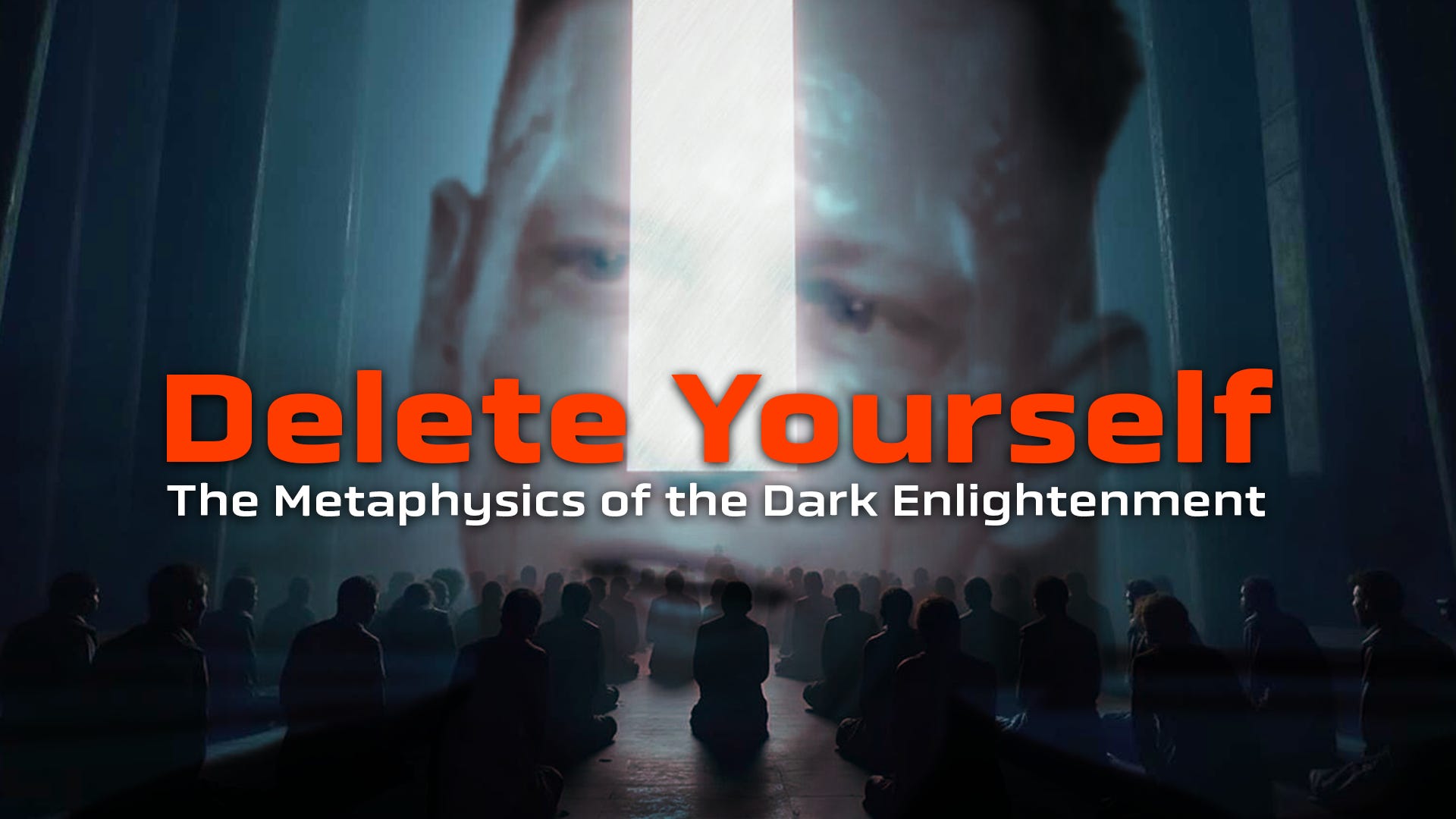
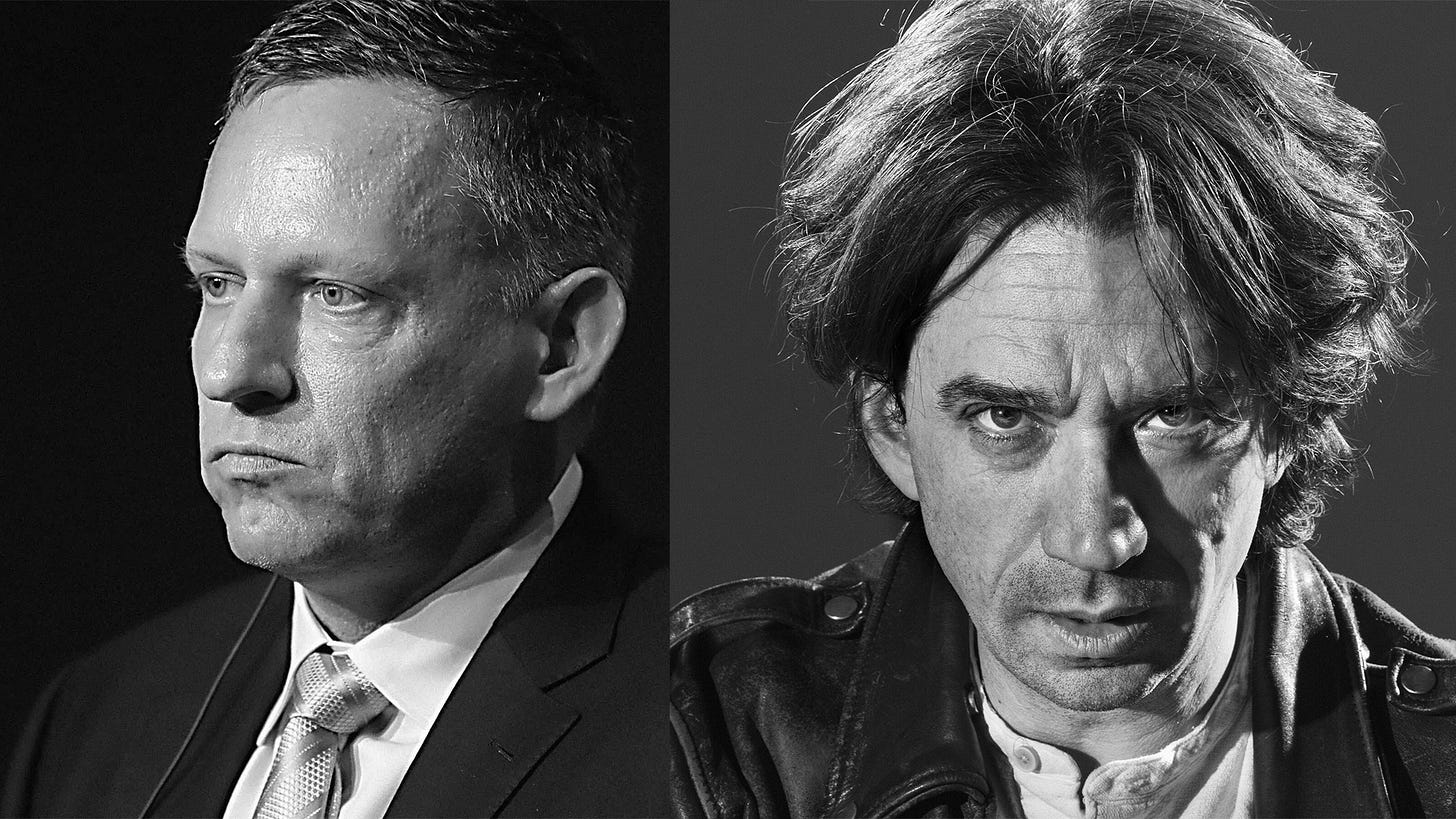
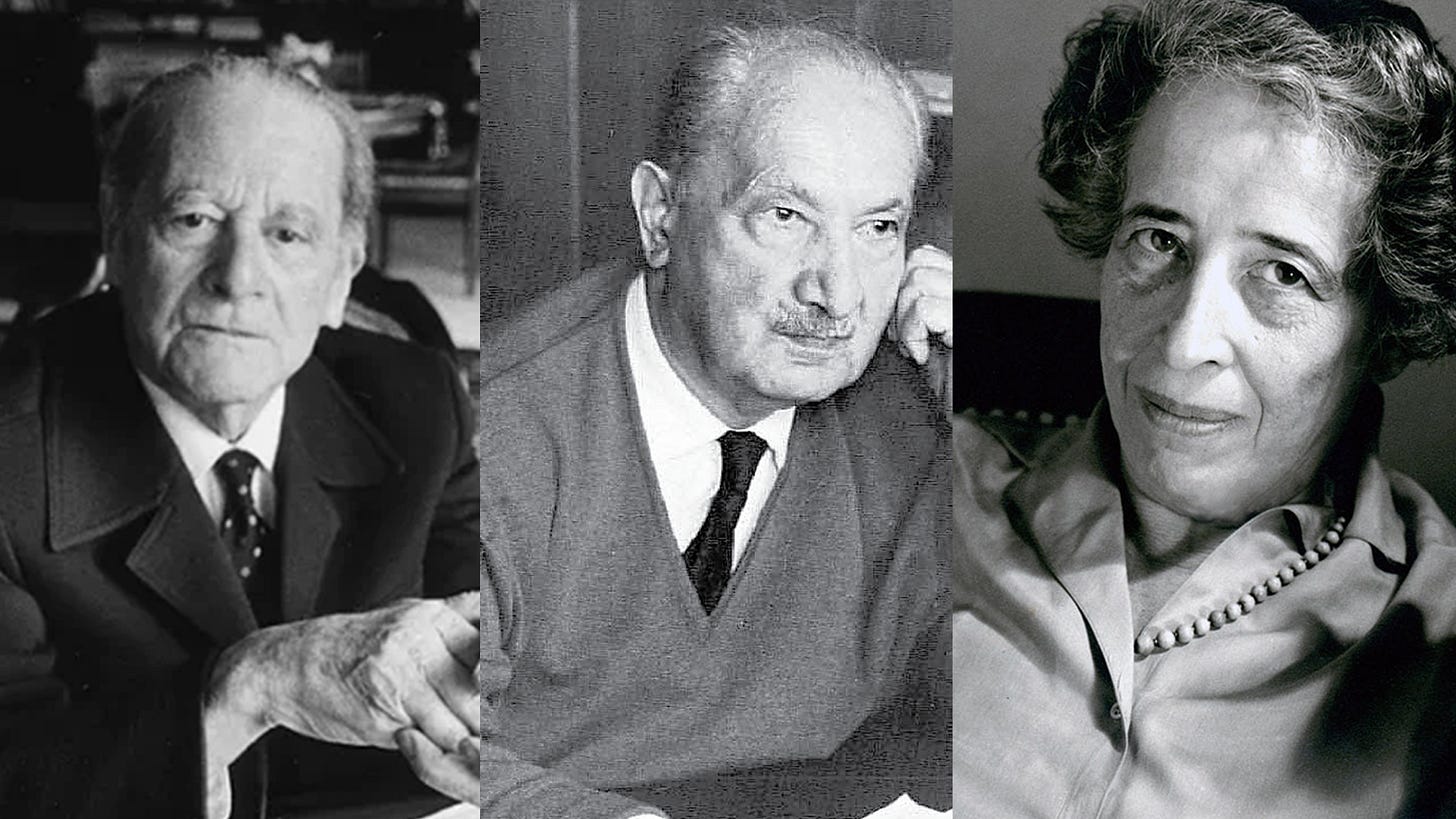

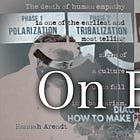

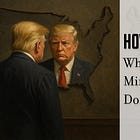
You know I admire your work, Jim. But this essay is fundamental, essential. The Enlightenment shook the world. As understood so well by Spinoza, the God mirage was exposed, and with it the false authority of rulers and clerics who used that mirage to project themselves as gods to dominate humanity from the beginning. Now, the fragile 'enlightenment' produced by 18th century revolutions is being systematically destroyed by the negation of democracy by would-be gods whose only law is greed and sadistic power over others driven by the absence of empathy, as you noted. But just as Nietzsche's God is dead, Spinoza's god (reason, science, love) still lives - for the moment at least.
Another powerful piece, Jim. Nobody's covering out time from your POV. Thank you.